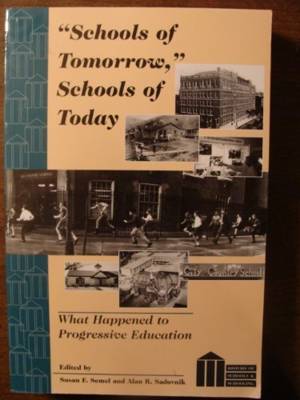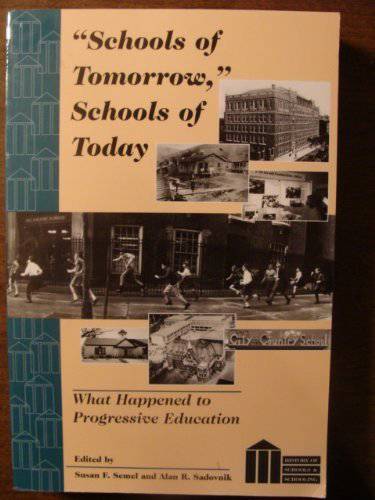
Door een staking bij bpost kan je online bestelling op dit moment iets langer onderweg zijn dan voorzien. Dringend iets nodig? Onze winkels ontvangen jou met open armen!
- Afhalen na 1 uur in een winkel met voorraad
- Gratis thuislevering in België vanaf € 30
- Ruim aanbod met 7 miljoen producten
Door een staking bij bpost kan je online bestelling op dit moment iets langer onderweg zijn dan voorzien. Dringend iets nodig? Onze winkels ontvangen jou met open armen!
- Afhalen na 1 uur in een winkel met voorraad
- Gratis thuislevering in België vanaf € 30
- Ruim aanbod met 7 miljoen producten
Zoeken
«Schools of Tomorrow», Schools of Today
What Happened to Progressive Education
€ 36,95
+ 73 punten
Omschrijving
«Schools of Tomorrow, » Schools of Today documents some of the child-centered progressive schools founded in the first half of the twentieth century and provides histories of some more contemporary examples of progressive practices. Part I discusses seven progressive schools founded in the first part of the twentieth century (Francis W. Parker; Organic; Park; City and Country; Lincoln; Dalton; Arthurdale), tracing them from their beginnings to the present, or until their regrettable demises. Part II examines four more contemporary schools (Butterfield; Free Union Country; Urban Academy; W. Haywood Burns), showing how progressive practices gained momentum from the 1960s onward. As a volume in the History of Schools and Schooling series, this book seeks to look to the past for what it can teach us today. The lessons from the past about what has happened to progressive education hopefully will inform contemporary debates.
Specificaties
Betrokkenen
- Uitgeverij:
Inhoud
- Aantal bladzijden:
- 450
- Taal:
- Engels
- Reeks:
- Reeksnummer:
- nr. 8
Eigenschappen
- Productcode (EAN):
- 9780820426662
- Verschijningsdatum:
- 28/11/2005
- Uitvoering:
- Paperback
- Formaat:
- Trade paperback (VS)
- Afmetingen:
- 153 mm x 228 mm
- Gewicht:
- 644 g

Alleen bij Standaard Boekhandel
+ 73 punten op je klantenkaart van Standaard Boekhandel
Beoordelingen
We publiceren alleen reviews die voldoen aan de voorwaarden voor reviews. Bekijk onze voorwaarden voor reviews.










